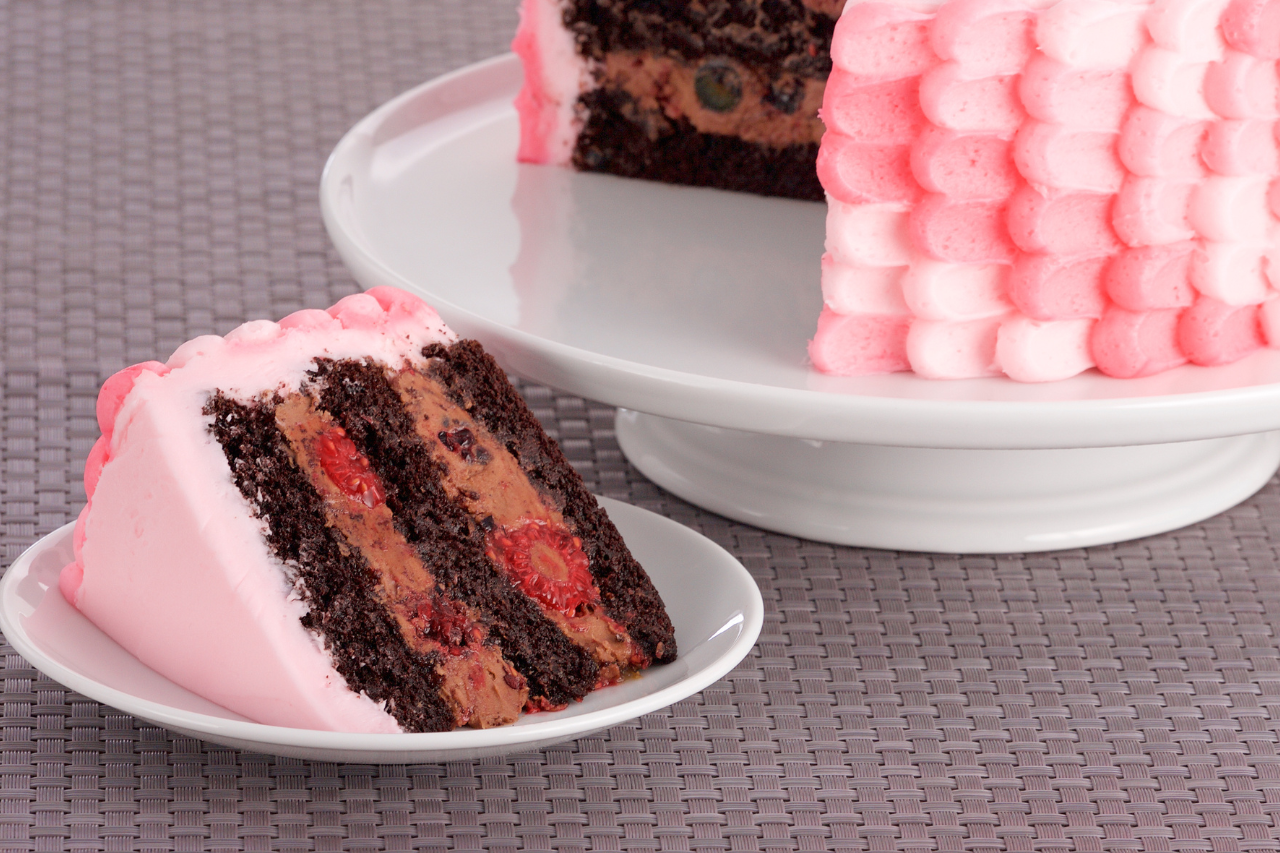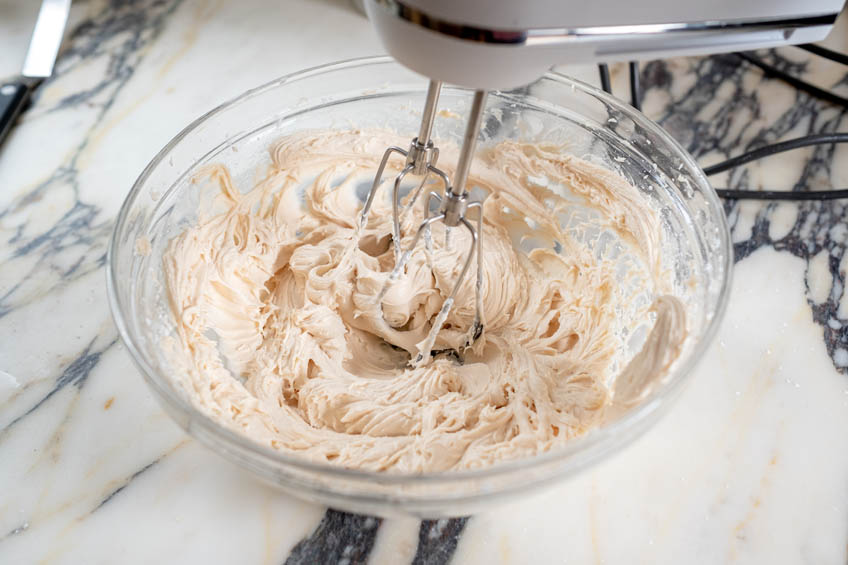
A rich and creamy (yet not too sugary) buttercream frosting can totally elevate a perfectly baked cake or cupcake. And conversely, too thin, or overly sweet icing can ruin even the moistest and most delicious baked goods. The art of mastering the best buttercream icing is an underrated but essential skill that any home baker will want to have in their baking toolkit, so we’re sharing our favourite tips and flavour combinations to take your buttercream skills to the next level.
Related: Anna Olson’s Beginner-Friendly Cupcake Decorating Guide
Best Buttercream Icing Tips
What’s the best butter for buttercream frosting?
It’s in the name for a reason; butter is the base of this frosting. It provides structure, richness, and flavour, so using a high-quality butter like one from Gay Lea’s line of premium butters will result in a better-tasting buttercream. The key is choosing a butter with high-fat, low water content. Gay Lea’s Baker’s Gold Unsalted Butter is made with a European standard 84% milk fat which will guarantee a thick, smooth frosting.
Should buttercream be cold before frosting your baked good?
Like butter itself, it’s best to work with buttercream frosting at room temperature. If the buttercream is too warm, it will melt and it will result in a smeared frosting job. If too cold, the butter may seize, or you may have a hard time frosting your baked treat as cold buttercream is difficult and messy to work with.
Is it better to make buttercream frosting ahead of time?
Buttercream icing is best to work with when fresh. If you’re looking to save time assembling your dessert, it’s recommended to make your cake or cupcakes in advance over the buttercream. This will give your baked goods time to cool before frosting and decorating. If necessary, you can prepare the buttercream in advance and either refrigerate or freeze it. If doing so, be sure to bring it down to room temperature before working with it (either thawing on the counter for an hour or two, or in the fridge overnight if working with frozen buttercream icing).

Is it better to beat or whisk your buttercream frosting?
This comes down to the type of buttercream you’re making and your own personal preference. For a thicker buttercream, beat it using a paddle attachment on your mixer. For a lighter, fluffier texture, beat using a whisk attachment.
Best Buttercream Frosting Flavour Ideas
If you’re looking to make your buttercream frosting taste even better, there are plenty of delicious flavour combinations to consider. Elevating a classic buttercream is easy and can make for a perfect flavour pairing with your baked treat. Consider the following flavour combinations:
Salted Caramel Buttercream
What could be better than a salty-sweet flavour pairing? Use premium butter like Gay Lea’s Sea Salted 84% butter. The higher fat content makes for a richer, creamier frosting that will make even beginner bakers feel like a pro. Frost chocolate brownies with a salted caramel buttercream or try it on a pumpkin snack cake.
Rich Chocolate Buttercream
Chocolate buttercream uses both cocoa powder and melted semi-sweet chocolate chips for a rich and decadent flavour. Pair with chocolate layer cake for the ultimate chocolate dream, or consider topping peanut butter cupcakes with chocolate buttercream frosting (don’t forget the pinch of sea salt on top for that perfect sweet and salty sensation!).
Fruit Buttercreams
Another great option to add flavour to your buttercream is using fruit, like the zest and juice of citrus fruits (lemon frosting pairs perfectly with spiced gingerbread cake) or natural or artificial fruit extracts added into a classic buttercream recipe.
Honey Buttercream
The addition of cream cheese and honey make this buttercream icing extra sweet. For a perfect flavour pairing, dollop fluffy mounds of this frosting over a honey cake and top with candied citrus or sandwich layers of the cake with fruit jam.
